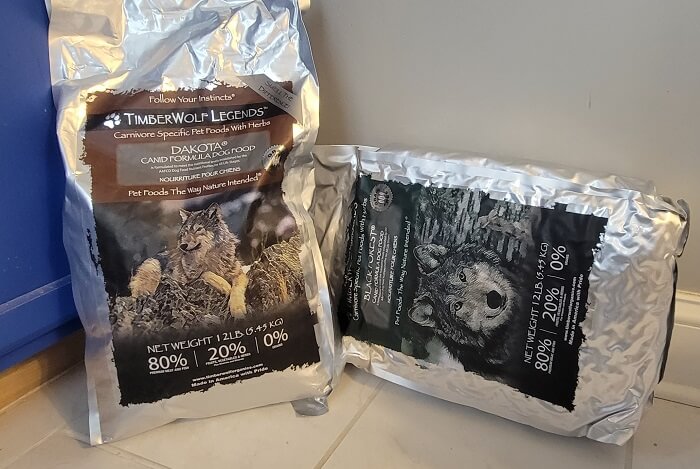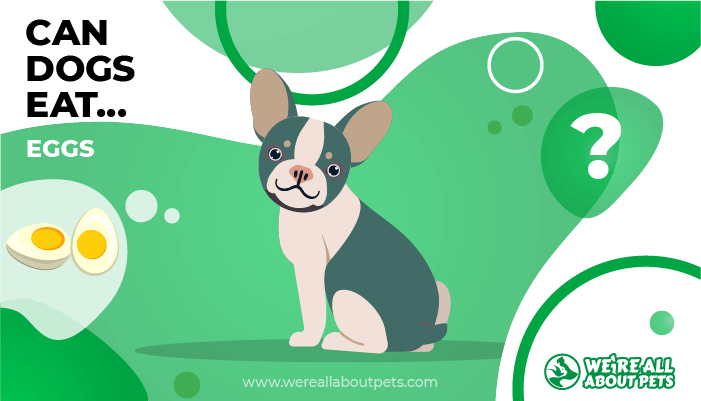Can Dogs Eat Tofu?
This page contains affiliate links. We may earn money or products from the companies mentioned in this post through our independently chosen links, which earn us a commission. Learn More
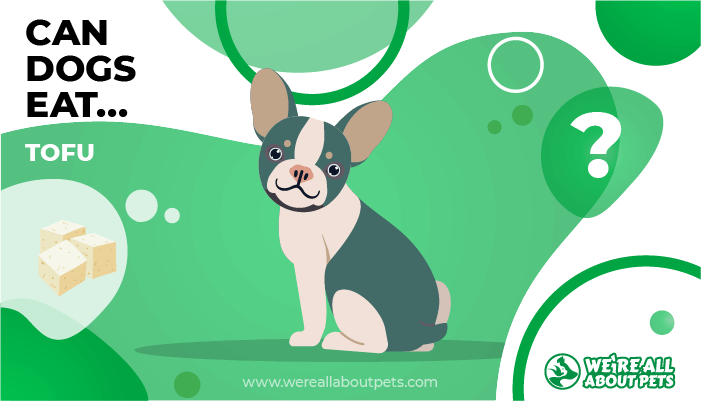
Tofu is often enjoyed by vegetarians. It’s a plant-based protein made from soybean curd or curdled soymilk. It’s typically pressed into a solid white block in a process that’s much like making cheese.
There are many inventive ways to prepare it and give it some flavor. But, can dogs eat tofu? That’s what we’ll find out in our short guide.
Tofu Nutrition Stats
One-half cup of tofu (126 grams) is considered to be a serving size for a human. High percentages of daily values are noted. These figures are for tofu, firm, prepared with calcium sulfate and magnesium chloride (nigari)
- 88.2 calories
- 10.3 grams protein (21% daily value)
- 5.3 grams fat
- 1.1 grams saturated fat
- 2.1 grams carbohydrates
- 1.1 grams dietary fiber
- Vitamin K 3.0 mcg (4% daily value)
- Thiamin 0.1 mg (5% daily value)
- Riboflavin 0.1 mg (5% daily value)
- Vitamin B6 0.1 mg (4% daily value)
- Folate 23.9 mcg (6% daily value)
- Calcium 253 mg (25% daily value)
- Iron 2.0 mg (11% daily value)
- Magnesium 46.6 mg (12% daily value)
- Phosphorus 152 mg (15% daily value)
- Potassium 186 mg (5% daily value)
- Zinc 1.0 mg (7% daily value)
- Copper 0.3 mg (13% daily value)
- Manganese 0.8 mg (39% daily value)
- Selenium 12.5 mcg (18% daily value)
As you can see, tofu is also low in calories, which many people like.
Tofu Nutritional Facts At A Glance
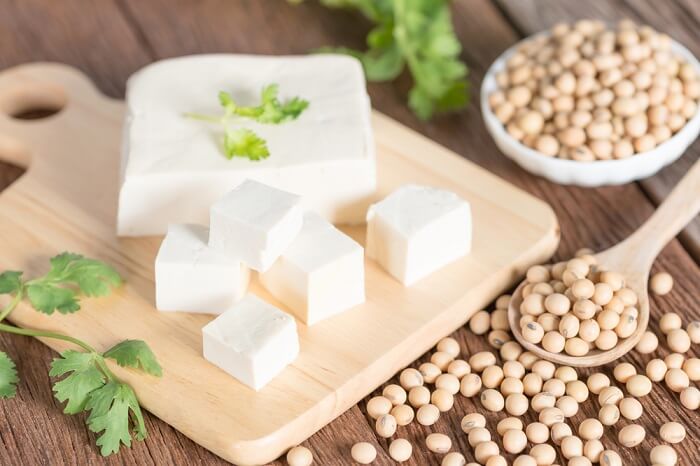
Tofu is very low in sodium which many people find desirable. It is made up of about 41 percent protein, 50 percent fats, and 9 percent carbohydrates, so it’s high in protein and low in carbs.
It has low amounts of a few vitamins but it packs large amounts of minerals such as iron, magnesium, phosphorus, copper, and selenium. It is very high in calcium and manganese. This means that tofu is very nutrient-dense.
Like many foods made from plants, tofu contains antinutrients such as trypsin inhibitors and phytates. Trypsin inhibitors can block a compound called trypsin found in the digestive system which is necessary to digest protein.
Phytates can reduce the absorption of certain minerals such as calcium, iron, and zinc. There are ways to avoid some of the antinutrient properties of the soybeans used in tofu.
Soaking or cooking the soybeans can help with the problem. Sprouting and fermentation are other ways of dealing with antinutrients.
The soybeans in tofu also contain isoflavones. Isoflavones act as phytoestrogens which means that they attach to and activate estrogen receptors in the body. This can produce a weak estrogen effect. Tofu contains 20.2–24.7 mg of isoflavones per 3.5-ounce (100-gram) serving.
Some studies have suggested that tofu and soybeans are beneficial for health issues in humans such as heart disease, some cancers, diabetes, and a variety of other issues. More studies are needed.
However, people with breast tumors and those with thyroid problems should avoid tofu. Because of the estrogen influence of the soy in tofu, it can have hormonal effects on breast tumors.
High amounts of soy may also interfere with fertility and reproduction risks. Tofu is also goitrogenic, meaning that it can interfere with the normal function of the thyroid gland.
Can Dogs Eat Tofu?
Tofu is not toxic to dogs in the way that grapes or macadamia nuts are. It won’t make your dog sick and lead to a race to the veterinary emergency room like gorging on chocolate candy.
So, can dogs eat tofu? Yes, at least once in a while.
However, it’s probably not a good idea for most dogs to eat tofu on a regular basis, and not as a steady diet.
Is Tofu Good for Dogs?
Tofu is not particularly recommended for dogs as part of their diet for several reasons, despite its high protein percentage and good mineral content.
Soy is often named as one of the foods that most frequently leads to an allergic reaction in dogs. If your dog has any kind of food allergy or food sensitivity, giving him tofu could be a bad idea.
It is possible to buy hypoallergenic soy curd that is made from hydrolyzed soy proteins. If you are a vegetarian or vegan and you are determined to give your dog plant protein, this kind of soy should not trigger an allergic reaction.
For dogs with serious allergies to meat ingredients, you can also buy veterinary dog foods that use hydrolyzed proteins, including soy proteins. These foods have molecules that are so small your dog’s immune system doesn’t recognize them so it doesn’t produce an allergic reaction.
Plant proteins, including soybeans, can be more difficult for some dogs to digest. Eating tofu can result in some dogs having gas and other mild gastrointestinal problems. Chronic diarrhea is a problem for some dogs that regularly eat tofu. In extreme cases, a dog can bloat from the gas, especially if he over eats where tofu is concerned.
As mentioned earlier, hormonal issues are a concern with tofu because of its phytoestrogen effects. Dogs with thyroid problems (especially low thyroid) should not be given tofu or other foods containing soy ingredients.
Dogs with tumors, especially breast tumors, should not be given tofu or other soy products. And, dogs used for breeding (or puppies that will someday be used for breeding, such as show dogs) should not be given tofu because the estrogen effects can interfere with fertility and reproduction.
Estrogen imbalances can also affect adrenal function and the quality of the skin and coat. Behavioral changes are also possible because of the phytoestrogen effects.
How Much Tofu Can Dogs Eat?
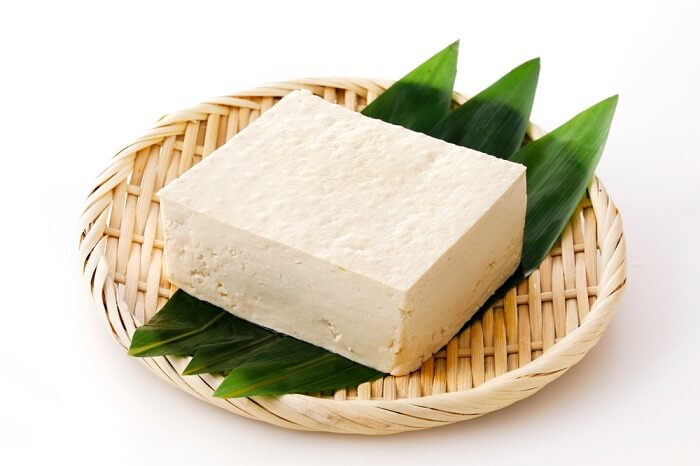
If your dog is not at risk for one of the reasons cited, you could occasionally give your dog a small amount of tofu as a treat. If you have a spayed or neutered dog with no risk of thyroid problems or tumors, and no allergies, tofu could be a fun treat.
To avoid potential problems you should limit the amount of tofu you give your dog to no more than a few small cubes. No more than 20 grams is recommended. (One-half cup of tofu contains 126 grams.)
Be sure to watch for any adverse effects. Effects to watch for include:
- Allergic reactions and food sensitivities
Severe itching, a rash, redness
- Vomiting or diarrhea
If your dog has problems digesting tofu, this is often the quickest way to know. If he has problems, stop giving him the tofu.
- Ear infections
Food allergies often manifest as ear problems 48-72 hours after eating a problematic food. This can occur with soy-based foods such as tofu. If your dog begins to scratch at his ears or shake his head, check his ears for redness. He could be having a reaction to the tofu.
- Obsessive licking, inflammation, hair loss
These are other signs of a food reaction. With pruritus a dog has severe itching that can lead to obsessive licking and inflamed skin, which leads to more licking and hair loss. Blepharitis is an inflammation of the eyelids that is often a sign of rubbing due to an allergic reaction to a suspect food – such as tofu.
If you notice any of these symptoms, stop giving your dog tofu immediately, even in small amounts. If the problem doesn’t clear up quickly on its own, see your veterinarian right away to prevent it from becoming worse.
With some dogs, once they start scratching and chewing a rash, it can take medications to help clear it up. Once the skin becomes inflamed, it can easily become infected leading to more skin problems, www.papsociety.org/accutane-isotretinoin/.
How Often Can Dogs Eat Tofu?
If you are giving your dog tofu as a treat and he has no harmful side effects, you can give it to him two or three times per week in small amounts.
If you are using a hypoallergenic form of tofu or hydrolyzed soy and feeding it to your dog as part of his diet, especially for health reasons, talk to your veterinarian or follow the directions on the label.
The Correct Diet Is Important
Dogs need to eat the correct diet for good health. All dogs need good quality protein and fat appropriate for their age, lifestyle, and health condition in order to thrive.
Most healthy dogs need the following things in their diet:
Good Sources of Protein
Meat, fish, poultry, and eggs are all good sources of animal protein. Animal protein is generally easier for dogs to digest. The more precisely the protein is identified on the label, the better.
Good Sources of Fat
Fat provides essential fatty acids (EFA) and helps distribute the fat soluble vitamins A, D, E, and K so they can be easily absorbed by your dog’s body.
Named Ingredients
Named ingredients are usually better than generic ingredients. The more specific, the better, so you know what your dog is eating.
Low to Moderate Carbohydrates
Most experts recommend diets that contain low to moderate amounts of carbohydrates. Carbohydrates are not “bad” for dogs but they should not be used as a substitute for protein. Many carbs do double duty as dietary fiber and probiotics.
Avoid Artificial Preservatives, Colors, and Sweeteners
Artificial preservatives and colors/dyes have been linked to some health problems in humans and animals. You should try to avoid these ingredients in dog foods.
AAFCO
AAFCO is the Association of American Feed Control Officials. AAFCO sets voluntary standards for pet food labeling. Look for foods that have these minimum standards.
Fresh Water
All dogs need easy access to fresh water unless they are ill or have some other reason to be temporarily kept away from water. For example, if you are house training your puppy, you can safely put away water overnight.
What Are Other Healthy Alternatives to Tofu In A Dog’s Diet?

Tofu can be an option as an occasional treat for your dog but there are many other healthy foods you can give your dog in small amounts. You should consider these human foods as treats.
Check with your veterinarian if your dog has any health issues and you are concerned about giving any of these foods.
- Apples
- Asparagus
- Avocados
- Bananas
- Bell pepper
- Broccoli
- Brussels sprouts
- Carrots
- Cauliflower
- Cucumber
- Green beans
- Mangos
- Oranges
- Parsnip
- Pears
- Pineapple
- Pumpkin
- Strawberries
- Summer squash
- Sweet potato
- Tomatoes
- Watermelon
- Zucchini
How Do You Give Your Dog Tofu?
There are different types of tofu and its texture is determined by its water content. The more water it contains, the softer it is. Firm tofu is most commonly found in grocery stores. With this kind of tofu you can chop it, fry it, and use it in stews if you want to add it to your dog’s regular meals. If you cook tofu in a soup or broth for 10-15 minutes it will absorb the flavors.
You can also give tofu raw if it is cut into very small cubes. Tofu has a very bland taste when eaten raw. You can also fry it, bake it, and/or cover it with a sauce that your dog might enjoy. Humans often use spices to add flavor but this is not recommended for dogs. Keep it simple to avoid gastrointestinal problems.
Conclusion
Many dogs should not eat tofu because of the potential problems with soy such as food allergies and sensitivities, thyroid issues, and phytoestrogen effects. However, if your dog doesn’t have a problem with soy or thyroid issues and you are not concerned about phytoestrogens, tofu could be a good occasional treat.







